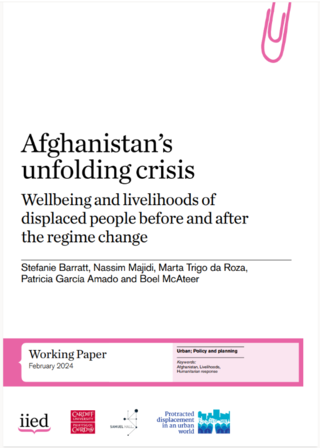Afghanistan’s unfolding crisis: Wellbeing and livelihoods of displaced people before and after the regime change
The Protracted Displacement in an Urban World (PDUW) project in Afghanistan aimed to understand the lives of displaced individuals in camp-like and urban settings before and after the 2021 regime change. Initial data collection occurred before the Taliban's takeover, with a follow-up sometime later to assess changes in livelihoods and wellbeing. The study, centered in Jalalabad city and Barikab settlement, evaluated five wellbeing dimensions. Findings revealed a significant economic downturn post-regime change, leading to increased hours worked for both men and women, more child labor, and - yet - a decrease in household incomes. Economic strain impacted health access, food security, and psychosocial wellbeing, notably worsening for women and urban displaced populations. The study calls for immediate humanitarian aid, targeted urban planning, and economic assistance, emphasizing the importance of gender inclusivity, community participation, and a Humanitarian-Development Nexus approach for sustainable solutions.
